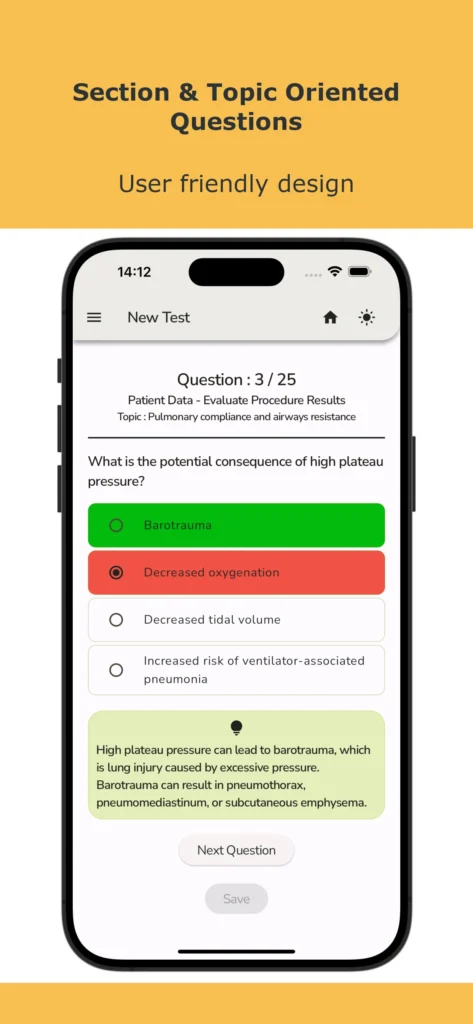Introduction to NBRC Approved CEUs
Welcome to our comprehensive guide on NBRC Approved CEUs for respiratory therapy continuing education. In this section, we will provide you with an overview of what NBRC Approved CEUs are and why they are important for respiratory therapists.
As a respiratory therapist, it is crucial to stay up-to-date with the latest advancements and best practices in the field. The National Board for Respiratory Care (NBRC) understands the importance of continuing education and has established a system to ensure that respiratory therapists have access to high-quality educational opportunities.
NBRC Approved CEUs are continuing education units that have been reviewed and approved by the NBRC. These CEUs are designed to enhance the knowledge and skills of respiratory therapists, allowing them to provide the best possible care to their patients.
Why are NBRC Approved CEUs important?
Continuing education is essential for respiratory therapists to maintain their professional competence and keep up with the ever-evolving field of respiratory care. By participating in NBRC Approved CEUs, respiratory therapists can:
- Stay current with the latest research, guidelines, and technologies in respiratory therapy
- Enhance their clinical skills and knowledge
- Improve patient outcomes through evidence-based practice
- Expand their professional network and collaborate with other respiratory therapists
How many CEUs are required by the NBRC?
The NBRC requires respiratory therapists to earn a certain number of CEUs within a specific time frame to maintain their credentials. The exact requirements may vary depending on the credential held by the respiratory therapist. For example, the NBRC requires Certified Respiratory Therapists (CRTs) to earn 30 CEUs every five years, while Registered Respiratory Therapists (RRTs) are required to earn 45 CEUs within the same time frame.
It is important to note that not all CEUs are created equal. To meet the NBRC’s requirements, respiratory therapists must earn NBRC Approved CEUs. These CEUs have been carefully reviewed and meet the high standards set by the NBRC.
Where can I find NBRC Approved CEUs?
There are several sources where respiratory therapists can find NBRC Approved CEUs. These include:
- Professional conferences and workshops
- Online courses and webinars
- Continuing education providers
- Professional organizations and associations
When searching for NBRC Approved CEUs, it is important to verify that the courses or programs have been approved by the NBRC. This can usually be done by checking the provider’s website or contacting them directly.
Conclusion
Continuing education is a vital component of professional growth for respiratory therapists. NBRC Approved CEUs provide respiratory therapists with the opportunity to enhance their knowledge, skills, and patient care. By staying current with the latest advancements in respiratory therapy, respiratory therapists can continue to provide high-quality care to their patients and contribute to the advancement of the field.
Benefits of NBRC Approved CEUs
Stay Current and Enhance Your Knowledge
Continuing Education Units (CEUs) are an essential part of maintaining your expertise and staying up-to-date in the field of respiratory therapy. By participating in NBRC approved CEUs, you have the opportunity to expand your knowledge, learn about the latest advancements, and stay current with best practices in respiratory care.
With the ever-evolving nature of healthcare, it is crucial for respiratory therapists to continuously update their skills and knowledge. NBRC approved CEUs provide a structured and reliable way to do so, ensuring that you are equipped with the most recent information and techniques.
By engaging in NBRC approved CEUs, you can explore various topics and areas of interest within respiratory therapy. Whether it’s the latest research on respiratory diseases, advancements in treatment modalities, or emerging technologies, CEUs offer a platform to delve deeper into these subjects and expand your expertise.
Meet Licensure and Certification Requirements
Obtaining and maintaining licensure and certification is a crucial aspect of a respiratory therapist’s career. Many states and professional organizations require a certain number of CEUs to be completed within a specific time frame to renew and maintain your license or certification.
NBRC approved CEUs fulfill these requirements, ensuring that you meet the necessary criteria to maintain your professional standing. By participating in these approved CEUs, you can rest assured that you are fulfilling the educational obligations mandated by your state or professional organization.
Additionally, NBRC approved CEUs can also contribute towards meeting the recertification requirements of your NBRC credentials. Whether you hold the Certified Respiratory Therapist (CRT) or Registered Respiratory Therapist (RRT) credential, participating in approved CEUs can help you stay current and maintain your professional status.
Enhance Career Opportunities
Continuing education plays a vital role in enhancing career opportunities for respiratory therapists. By investing in your professional development through NBRC approved CEUs, you demonstrate your commitment to ongoing learning and growth.
Employers value respiratory therapists who actively engage in continuing education and strive to stay updated with the latest advancements in the field. By participating in NBRC approved CEUs, you showcase your dedication to providing high-quality care and staying at the forefront of respiratory therapy.
Furthermore, participating in CEUs can open doors to new career opportunities. Employers often seek respiratory therapists who have a diverse skill set and a broad knowledge base. By continuously expanding your expertise through NBRC approved CEUs, you increase your marketability and become a more attractive candidate for promotions, leadership roles, and specialized positions.
Access to High-Quality Education
When it comes to continuing education, the quality of the educational content is of utmost importance. NBRC approved CEUs ensure that you have access to high-quality education that is relevant, accurate, and up-to-date.
The NBRC carefully evaluates and approves CEU providers and courses, ensuring that they meet the necessary standards of excellence. By participating in NBRC approved CEUs, you can be confident that you are receiving education from reputable sources and that the content is reliable and trustworthy.
Additionally, NBRC approved CEUs often offer a wide range of learning formats, including online courses, webinars, conferences, and workshops. This variety allows you to choose the format that best suits your learning style and schedule, making it convenient to engage in continuing education.
Conclusion
Participating in NBRC approved CEUs offers numerous benefits for respiratory therapists. From staying current with the latest advancements to meeting licensure and certification requirements, these CEUs provide a valuable platform for professional growth and development. By investing in your continuing education, you enhance your knowledge, expand your career opportunities, and ensure that you are providing the highest level of care to your patients.
How to Earn NBRC Approved CEUs
As a respiratory therapist, it is essential to stay up-to-date with the latest advancements and best practices in your field. One way to demonstrate your commitment to professional growth and maintain your credentials is by earning NBRC approved CEUs (Continuing Education Units).
Here is a comprehensive guide on how to earn NBRC approved CEUs:
1. Identify Approved Providers
Start by identifying approved providers of NBRC CEUs. The NBRC (National Board for Respiratory Care) has a list of approved providers on their website. These providers offer courses and educational activities that meet the NBRC’s standards for continuing education.
2. Choose Relevant Courses
Once you have identified approved providers, choose courses that are relevant to your practice and interests. Look for courses that cover topics such as new treatment modalities, advances in respiratory care, or updates in guidelines and protocols.
Consider your professional goals and areas where you want to expand your knowledge. Selecting courses that align with your interests will make the learning experience more engaging and beneficial.
3. Attend Workshops and Conferences
Attending workshops and conferences is another excellent way to earn NBRC approved CEUs. These events often feature expert speakers, interactive sessions, and networking opportunities. They provide a platform to learn from industry leaders, exchange ideas with peers, and stay updated on the latest trends in respiratory therapy.
Check the NBRC’s list of approved workshops and conferences to ensure that the event you plan to attend offers CEUs.
4. Online Courses and Webinars
Online courses and webinars offer flexibility and convenience, allowing you to earn CEUs from the comfort of your home or office. Many approved providers offer online courses that cover a wide range of respiratory therapy topics.
Make sure to choose courses from reputable providers that offer interactive and engaging content. Look for courses that provide practical knowledge and skills that you can apply in your daily practice.
5. Participate in Research and Presentations
Active involvement in research and presentations can also earn you NBRC approved CEUs. Presenting your research findings at conferences or contributing to research projects demonstrates your commitment to advancing the field of respiratory therapy.
Check with the NBRC for guidelines on earning CEUs through research and presentations.
6. Maintain Documentation
It is crucial to maintain documentation of your CEUs for future reference and credentialing purposes. Keep records of the courses you have completed, including certificates of completion or attendance.
Some approved providers may also offer a transcript or record of your CEUs, which can be helpful when renewing your credentials.
Remember to keep your documentation organized and easily accessible.
Conclusion
Earning NBRC approved CEUs is an essential part of maintaining your credentials as a respiratory therapist. By staying updated with the latest advancements and best practices in your field, you demonstrate your commitment to providing high-quality care to your patients.
Identify approved providers, choose relevant courses, attend workshops and conferences, participate in online courses and webinars, and actively engage in research and presentations. Maintain documentation of your CEUs to ensure a smooth renewal process.
FAQs about NBRC Approved CEUs
What are NBRC Approved CEUs?
NBRC Approved CEUs refer to continuing education units that have been approved by the National Board for Respiratory Care (NBRC). These CEUs are specifically designed for respiratory therapists to help them maintain their professional competence and stay up-to-date with the latest advancements in the field.
Respiratory therapists are required to earn a certain number of CEUs within a specified time period to renew their licenses and demonstrate their commitment to ongoing professional development.
By choosing NBRC Approved CEUs, respiratory therapists can be confident that the courses they take meet the high standards set by the NBRC and are relevant to their practice.
Where can I find NBRC Approved CEUs?
There are several sources where you can find NBRC Approved CEUs:
- Online platforms: Many online platforms offer a wide range of NBRC Approved CEUs that can be completed at your own pace. These platforms often provide a variety of courses covering different topics, allowing you to choose the ones that align with your interests and professional goals.
- Professional associations: Respiratory therapy professional associations often offer CEU opportunities for their members. These associations may organize conferences, webinars, or workshops that provide NBRC Approved CEUs.
- Local educational institutions: Colleges, universities, and vocational schools may offer courses or workshops that have been approved by the NBRC. These institutions can be a great resource for finding in-person CEU opportunities.
How many CEUs do I need to renew my respiratory therapy license?
The number of CEUs required to renew a respiratory therapy license varies by state and licensing board. It is important to check the specific requirements of your state or licensing board to ensure compliance.
For example, in some states, respiratory therapists may be required to earn a certain number of CEUs every two years, while in others, the requirement may be every three years. The number of CEUs required can range from 10 to 30 or more.
Are there any free NBRC Approved CEUs available?
Yes, there are free NBRC Approved CEUs available. Some online platforms and professional associations offer free CEU courses as a benefit to their members. These courses may cover a wide range of topics and provide an opportunity for respiratory therapists to earn CEUs without incurring any additional costs.
Additionally, some organizations may offer promotional periods during which they provide free access to their CEU courses. It is worth exploring these options to find free NBRC Approved CEUs.
How many CEUs is PALS (Pediatric Advanced Life Support) for NBRC?
The number of CEUs for PALS (Pediatric Advanced Life Support) that are approved by the NBRC may vary. It is recommended to check with the specific organization or provider offering the PALS course to determine the number of CEUs awarded upon completion.
How many CEUs is ACLS (Advanced Cardiovascular Life Support) for NBRC?
Similar to PALS, the number of CEUs for ACLS (Advanced Cardiovascular Life Support) that are approved by the NBRC may vary. It is advisable to check with the organization or provider offering the ACLS course to ascertain the number of CEUs awarded upon successful completion.
Conclusion
In conclusion, NBRC approved CEUs are an essential component of respiratory therapy continuing education. These CEUs not only help respiratory therapists stay up-to-date with the latest advancements in the field but also ensure that they meet the requirements for maintaining their licensure. By completing NBRC approved CEUs, respiratory therapists can enhance their knowledge and skills, improve patient care, and demonstrate their commitment to professional development.
It is important to note that there are various options available for obtaining NBRC approved CEUs. Respiratory therapists can choose from a wide range of courses, workshops, conferences, and online resources that offer CEUs specifically designed for their professional development. Additionally, there are many free respiratory CEUs that are NBRC approved, providing an accessible and cost-effective way for respiratory therapists to fulfill their continuing education requirements.
When selecting NBRC approved CEUs, respiratory therapists should consider their specific areas of interest and professional goals. They should also ensure that the CEUs they choose align with the requirements set by the NBRC and their state licensing board. By carefully selecting relevant and high-quality CEUs, respiratory therapists can maximize the value of their continuing education and stay at the forefront of their profession.
In summary, NBRC approved CEUs play a crucial role in the ongoing education and professional development of respiratory therapists. By continuously expanding their knowledge and skills through CEUs, respiratory therapists can provide the highest level of care to their patients and maintain their professional standing in the field. Whether it’s through paid or free CEUs, respiratory therapists should prioritize their continuing education to stay current, competent, and confident in their practice.
Key Takeaways
1. NBRC Approved CEUs: A Comprehensive Guide to Respiratory Therapy Continuing Education
Respiratory therapists play a crucial role in the healthcare industry, providing care and treatment for patients with respiratory conditions. To maintain their professional competence and stay up-to-date with the latest advancements in the field, respiratory therapists are required to earn Continuing Education Units (CEUs). The National Board for Respiratory Care (NBRC) is the governing body that approves CEUs for respiratory therapists.
2. Importance of NBRC Approved CEUs
Earning NBRC approved CEUs is essential for respiratory therapists to maintain their licensure and demonstrate their commitment to professional development. These CEUs help therapists stay current with the latest research, techniques, and technologies in respiratory therapy, ensuring the delivery of high-quality care to patients.
3. Finding NBRC Approved CEUs
There are various sources where respiratory therapists can find NBRC approved CEUs. These include professional organizations, educational institutions, online platforms, and conferences. It is important to ensure that the CEUs obtained are approved by the NBRC to meet the requirements for licensure renewal.
4. Free NBRC Approved CEUs
Respiratory therapists may be interested in finding free NBRC approved CEUs to fulfill their continuing education requirements without incurring additional costs. Some organizations and online platforms offer free CEUs for respiratory therapists, providing an opportunity to enhance their knowledge and skills without financial burden.
5. How Many CEUs is PALS for NBRC?
The Pediatric Advanced Life Support (PALS) course is a valuable certification for respiratory therapists working with pediatric patients. The number of CEUs awarded for PALS may vary depending on the specific program and the requirements of the NBRC. It is important to check with the NBRC or the course provider to determine the number of CEUs awarded for PALS.
6. How Many CEUs is ACLS for NBRC?
The Advanced Cardiovascular Life Support (ACLS) course is another important certification for respiratory therapists. Similar to PALS, the number of CEUs awarded for ACLS may vary. It is recommended to consult the NBRC or the course provider to obtain accurate information regarding the number of CEUs awarded for ACLS.
Continuing education is a vital component of professional growth for respiratory therapists. By earning NBRC approved CEUs, therapists can stay current with advancements in the field and provide the best possible care to their patients. Whether seeking free CEUs or pursuing specialized certifications like PALS and ACLS, respiratory therapists have various options to fulfill their continuing education requirements.








